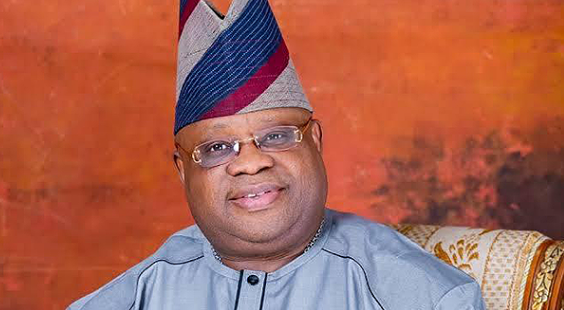Abuja, Nigeria – The Minister of Marine and Blue Economy, Adegboyega Oyetola, has called for the immediate removal of war risk insurance premiums imposed on vessels entering Nigerian ports, describing the charges as outdated, unjustified, and harmful to the country’s maritime competitiveness.
Speaking through his Special Adviser on Media and Communications, Dr. Bolaji Akinola, at the 3rd Annual Maritime Lecture of the Maritime Reporters Association of Nigeria (MARAN) in Lagos, Oyetola emphasized that Nigeria no longer fits the profile of a high-risk maritime zone.
Highlighting the ministry’s achievements since its establishment in 2023, the minister noted that decisive reforms have significantly transformed the sector. These include the elimination of the longstanding Apapa port congestion, the launch of Africa’s first National Policy on Marine and Blue Economy, and the Federal Executive Council’s approval of modernisation projects for the Lagos and Tin Can Island Ports, with similar plans underway for the Eastern Ports.
He further disclosed that the combined revenue of maritime agencies rose from ₦700.79 billion in 2023 to ₦1.39 trillion in 2024—the highest in the sector’s history. Other notable milestones include the revival of the dormant Cabotage Vessel Financing Fund, the inauguration of a National Flag Carrier Technical Committee, improvements in inland waterway safety, and enhanced domestic fish production.
Despite these achievements, Oyetola expressed concern that global insurers continue to classify Nigeria as a high-risk destination, leading to the imposition of war risk premiums estimated to have cost the country over $1.5 billion in recent years. He argued that such assessments are no longer accurate, citing Nigeria’s improved maritime security and the absence of piracy incidents in the last four years.
Much of this success, he noted, is attributed to the Deep Blue Project—a joint security initiative by the Nigerian Maritime Administration and Safety Agency (NIMASA) and the Nigerian Navy, involving real-time surveillance and coordinated air, land, and sea operations. The project has earned Nigeria international recognition, including delisting from the International Bargaining Forum’s high-risk nations and commendations from the International Maritime Organization (IMO) and the International Maritime Bureau (IMB).
However, Oyetola noted that key insurance underwriters, particularly Lloyd’s of London, have yet to revise their assessments to reflect the improved security landscape.
He assured stakeholders that the Ministry is actively engaging with international maritime bodies—including BIMCO, the International Chamber of Shipping, and Lloyd’s—to present verified data on Nigeria’s maritime safety progress. In the interim, the government will continue to enhance patrol operations, publish security intelligence reports, deepen regional cooperation under the Yaoundé Architecture, and foster the development of local marine insurance markets to retain value domestically.
“In just two years, we have proven that transformation is possible with vision and resolve,” the minister stated. “This is only the beginning. Our commitment remains firm—to secure our waters, modernise our ports, empower indigenous operators, and position the blue economy as a cornerstone of Nigeria’s sustainable development.”
By Enoch odesola/ August 28,2025
Discover more from DnewsInfo
Subscribe to get the latest posts sent to your email.




